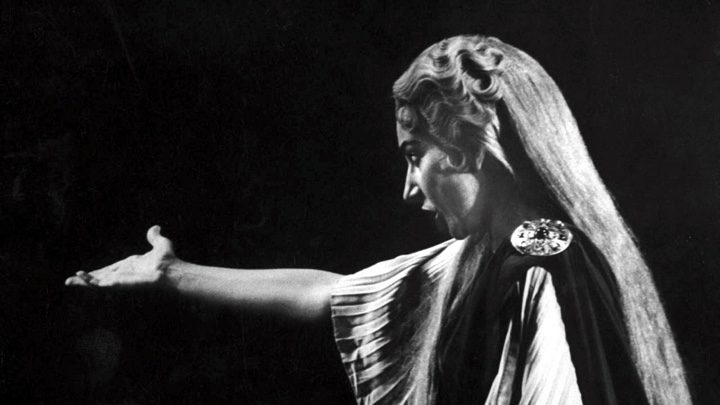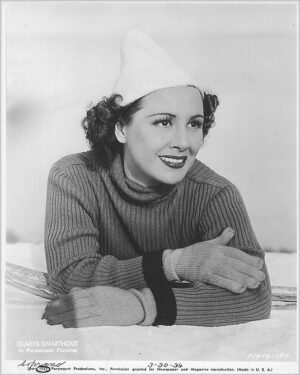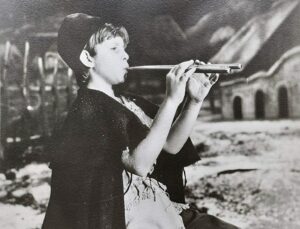Robert J. Landry in Variety:
Although “Norma” is a soprano-crusher and the newcomer is in rare company, if not always in rare form, in singing the role, the mood of the opening night crowd was, almost perversely, to hand the palms to tenor Mario Del Monaco as the Roman governor and Fedora Barbieri as Norma’s fellow nun (if that’s the word) in the Druid religious order. Indeed, at the conclusion of Act III Mme. Callas, for all her reputation as a firebrand egoist, was openly deferring at the bows of her colleague, an Italian singer returning to the Met after some years. Very definitely Barbieri was stealing, or coming close to it, the show. Callas, the debuting star, must be given high marks for displaying every appearance of sportsmanship. If she was doing the well known slow operatic backstage burn it did not show to the naked eye. And that may be racked up as not the least of the new soprano’s achievements.
For Maria Callas cannot be dismissed by cheering the tenor or bestowing an ovation upon her mezzo-soprano sidekick. Nor by the standees (those audibly opinionated ones) sneering that she had adenoids and a rich husband. Such cracks were plentiful at the Met Monday before the final triumphant Act IV curtain at midnight. They suggest that the Callas publicity buildup had been too successful for the lady’s own good and equally that her own “claque” was inferior in vigor to those of Del Monaco and Barbieri. Of course there are not supposed any longer to be “claques” at the Met. Just partisans. . . .
As to the voice of Maria Callas (and beaucoup triumphs lie behind her) it has many varying qualities, mostly good. Outwardly calm and poised, possessed of a perhaps too formidable reputation for self-assurance, her acting was unhesitant if sometimes too technically calculated. That she was expected to blow New York’s eyebrows off, that she did not; that two cast members were especially “hot” that night; and that the star was not spontaneously taken to heart surely does not signify flop. On the contrary she had her own considerably personal ovation, delayed until midnight,
Even so it was an exciting night. Launching the 73rd year of that branch of entertainment which never makes a profit. This time the opera was superior as a spectacle to the ladies in the audience. The usual premiere furore prevailed. Sherrys was a snakepit of slithering satin. The number of women wearing badges reading “working press” was absolutely beyond credence. There aren’t that many girl reporters, except at Time Inc.
On this day in 1787 Mozart’s Don Giovanni premiered in Prague.Born on this day in 1891 comedian and singer Fanny Brice.




